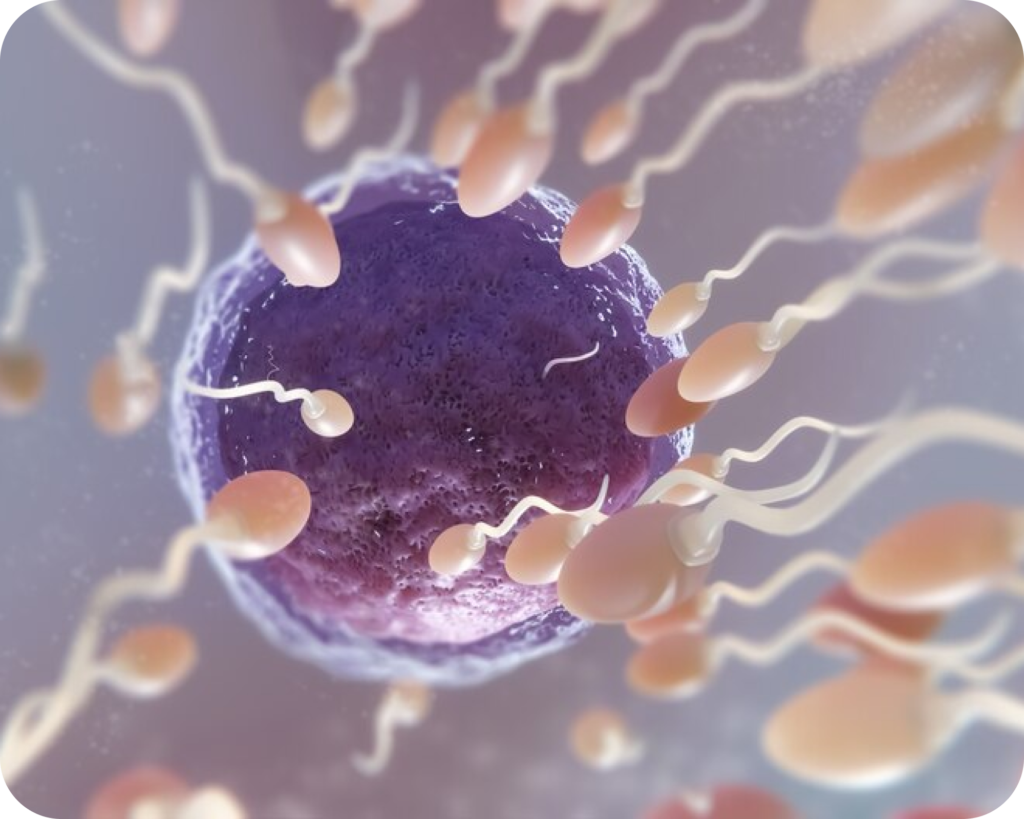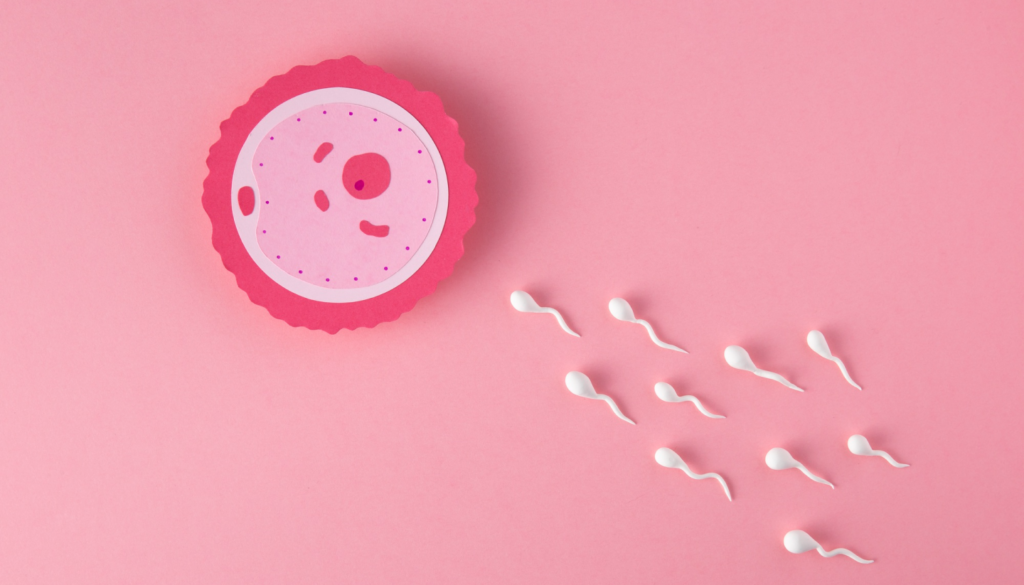Home /Male Fertility Issues/ Male Disorder
Understanding Disorders of Male Reproductive System
- The male reproductive system is a complex network of organs and hormones, responsible for the production of sperm and the delivery of those sperm to fertilize an egg. Unfortunately, like any other system in the human body, it can encounter disorders and complications that affect fertility and overall well-being.
- In a world where health is wealth, understanding male disorders is pivotal. Gaining insights into these issues not only fosters a better quality of life but also nurtures healthier societies.
- Whether you're a man seeking to understand your own reproductive health better or someone looking to support a loved one, this article aims to provide valuable insights into the most common male reproductive disorders and how they can be managed.
Introduction to Male Disorders
It’s high time we demystify the topic of male disorders, addressing both misconceptions and real concerns.

- Background and Overview:
From time immemorial, male disorders have been a topic often swept under the rug. But as knowledge advances, so does the understanding and empathy towards these conditions.
- Common Myths and Misunderstandings:
“It’s just a phase”, “Real men don’t have health issues” – myths abound. Dispelling them is the first step toward genuine understanding.
Types of Male Reproductive Disorders
Understanding the varied landscape of male disorders ensures accurate diagnosis and effective treatment.

01. Infections and Inflammatory Conditions
Disorders like prostatitis and epididymitis highlight the impact of infections on male reproductive health.
02. Structural Abnormalities and Deformities
Conditions such as hypospadias or undescended testes remind us of the significance of structural soundness.
03. Tumors and Neoplastic Growth
Prostate cancer and testicular tumors are pressing concerns, emphasizing early detection.
Root Causes and Triggers
Identifying the underlying causes can be pivotal for preventive measures and therapeutic strategies.

Genetic Factors and Hereditary Influences
Genetic blueprints sometimes harbor clues, revealing predispositions to certain disorders.Genetics plays an undeniable role in many disorders of male reproductive system.
Lifestyle and Environmental Causes
Factors like smoking, excessive alcohol consumption, drug use, lack of exercise – our choices matter, often more than we realize. Interestingly, other factors such as prolonged exposure to pollution, harmful substances, and even workplace stress can play roles in disorders.
Accidents and Traumatic Events
Trauma to the reproductive region can usher in a myriad of complications.
A Few Common Disorders of Male Reproductive System
In our exploration of common male reproductive disorders, we will now delve into specific conditions that can significantly impact a man’s fertility and reproductive health. Let’s take a closer look at each of these conditions

01. Varicocele
Varicocele is a condition where veins in the scrotum become enlarged, leading to increased testicular temperature. Elevated temperature can harm sperm production and quality, reducing fertility.
02. Azoospermia
Azoospermia is a male issue where there’s no sperm in the ejaculate. It happens because of a blockage or a problem with sperm production, resulting in infertility.
03. Retrograde Ejaculation
Retrograde ejaculation: semen flows into the bladder, not out. Due to bladder neck muscle issues, it is often linked to specific medications or medical problems.
04. Ejaculation Problem
Ejaculation issues: trouble ejaculating, too soon or late. Caused by psychology, stress, health conditions, or drugs, impacting fertility.
05. Erectile Dysfunction
Erectile Dysfunction is the difficulty achieving or keeping an erection for sex, usually due to age, stress, health problems, or medication side effects, affecting sexual performance.
06. Abnormal Semen Analysis
Abnormal semen analysis results from sperm not meeting standard count, movement, or shape criteria. Causes include infections, hormones, lifestyle, or unknown factors.
07. Chromosomal Disorders
Chromosomal disorders in males result from genetic abnormalities, affecting sperm quality and fertility. These disorders can be hereditary or spontaneous.
Male Disorders: Symptoms, Detection, and Therapy
Awareness, early detection, and appropriate treatment are game-changers

Warning Signs to Be Vigilant About
Symptoms of male reproductive disorders can vary widely, encompassing anything from pain and discomfort to changes in sexual function. Keep an eye out for unexplained fatigue, shifts in mood, or physical changes. These early signs often signal the need for attention and evaluation.
Diagnostic Procedures and Their Accuracy
The world of diagnostics has evolved significantly. Today, medical imaging and laboratory tests offer remarkable accuracy in identifying male reproductive disorders. From routine blood tests to advanced imaging techniques, modern medicine equips us with the tools to pinpoint issues with precision.
Innovations in Treatment and Rehabilitation
The landscape of treatments for male reproductive disorders has seen remarkable advancements. Whether it’s medications, therapeutic interventions, or simple lifestyle adjustments, the range of options is broader and more effective than ever before. Discover renewed hope in the pursuit of improved reproductive health and overall well-being.
Male Reproductive Disorders: Prevention & Health Maintenance
Why wait for an issue when prevention is possible?

Importance of Regular Check-ups
Don’t wait for symptoms to appear. Annual visits to your healthcare provider serve as a proactive shield against potential male organsmic disorders. Early detection and preventive measures can make all the difference in maintaining good health.
Dietary and Lifestyle Recommendations
A balanced diet, regular exercise, and quality sleep are the cornerstones of well-being. They play a significant role in preventing a wide range of health issues. Investing in these habits is an investment in your long-term health.
Mental and Emotional Well-being
Stress, anxiety, and depression can pave the way for various health and reproductive disorders. Prioritizing your mental and emotional well-being is essential. It’s not just about feeling good; it’s about safeguarding your overall health.
- To conclude, confronting male reproductive disorders may present a daunting path to navigate, but it's important to recognize that these challenges are not insurmountable. By fostering awareness, extending empathy, and embracing the benefits of advanced medical care, every man can confidently strive for a healthy and fulfilling life. In essence, the journey may be challenging, but it is entirely feasible, offering the promise of a rewarding and satisfying future.
- For tailored advice and professional assistance regarding any disorders of male reproductive system and other treatments for male reproductive issues, rely on Vijay Sristi. Our dedicated team is dedicated to supporting you throughout your journey to parenthood.
Frequently Asked Questions
1. Are male reproductive disorders always linked to infertility?
Not necessarily. While some male reproductive disorders can impact fertility, others may primarily affect sexual function or overall well-being. It’s essential to consult a healthcare professional for a thorough evaluation and personalized guidance.
2. Can lifestyle modifications reverse male disorders?
While not all male reproductive disorders are reversible through lifestyle changes, some conditions can indeed be managed or improved by adopting a healthier lifestyle. Lifestyle modifications often play a crucial role in complementing medical treatments and enhancing overall well-being.
3. Are there any age-specific male reproductive disorders?
Certain male reproductive disorders are more prevalent in specific age groups, but no age is entirely immune to these conditions. Some disorders may become more common as men age, while others can affect individuals at various life stages.
4. Can male reproductive disorders be completely cured?
The potential for a complete cure varies depending on the specific disorder. Some male reproductive disorders can be effectively treated or managed, leading to significant improvements in symptoms and quality of life. However, others may require ongoing management and medical care.
5. How can one mentally cope with disorders of male reproductive system?
Mental and emotional well-being is a crucial aspect of dealing with male reproductive disorders. Seeking counseling, therapy, or joining support groups can provide valuable emotional support and coping strategies. These resources can help individuals navigate the challenges and uncertainties that may accompany such disorders.
6. Are male disorders always lifelong?
Not necessarily. Male reproductive disorders span a spectrum, and their duration can vary. Some disorders may be transient and resolve with time or appropriate treatment. Others may require long-term management to optimize health and well-being. Consulting a healthcare provider is essential for accurate diagnosis and tailored management plans.


